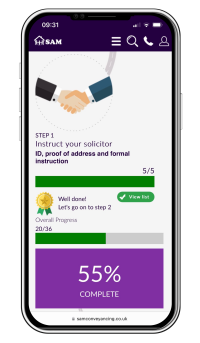What documents do solicitors need when selling a house?
Documents provided by the solicitor To be completed by the seller | Documents provided by the seller |
|
|
This is generally what is required of the owner to sell a house, however, the best advice is to provide all documents received by you when you purchased the property, to your solicitor, so they can decide what is needed and what isn't. Some sellers hold onto documents because they are nervous about losing them, however, it can cause delays, so it is best to send them by special delivery and trust your solicitor to look after these for you.
You will find that solicitors and conveyancers charge different fees for the work they do. This is an important article to read to understand why - How much does a solicitor charge to sell a house?.
Sellers can be sued for misrepresentation
Where a seller knowingly doesn't provide documents to their solicitor which could cause the buyer a loss, then the buyer could sue the seller. Read more - Can I Sue Previous Owner?How long are you liable after selling a house?
Under the Misrepresentation Act of 1967 a buyer has 6 years to bring a claim against the seller. If successful, the contract would be made void and the seller would take back ownership of the property.When does the solicitor send out the documents?
The property information forms should be sent to the seller within 1 week of instruction. Most of the best online conveyancing solicitors send them out within 24-48 hours and use digital documents so that you can fill them in and sign them online.If your solicitor hasn't sent you your property forms within the week, or suggests posting them to you, you might want to look for a new solicitor because, for the seller, the start of the conveyancing process is where the longest delays happen. Once you've filled in your documents for the solicitor, then your job is done and it is all over to the buyer and their solicitor to raise enquiries.
- online checklists
- videos
- free downloads
- useful tips
What documents need to be signed when selling a house?
- Client Instruction Form. This is one of the first documents a solicitor needs the seller to sign when selling a house. This gives the solicitor authority to act on the seller's behalf. Until this is signed and received, the seller's solicitor cannot start any work. This is normally signed digitally, but often in hard copy if the solicitor doesn't use technology.
- Contract of sale. Part of a pack of documents needed to be signed for the exchange of contracts. All sellers sign it, but don't date it and it doesn't need a witness. This is signed in hard copy and sent back in the post to your solicitor.
- TR1. Signed and witnessed as a deed by all the sellers but not dated.
- Deeds or licences. (if applicable) The seller may need to enter into a deed of variation or a licence to alter.
Andrew started his career in 2000 working within conveyancing solicitor firms and grew hands-on knowledge of a wide variety of conveyancing challenges and solutions. After helping in excess of 50,000 clients in his career, he uses all this experience within his article writing for SAM, mainstream media and his self published book How to Buy a House Without Killing Anyone.
Caragh is an excellent writer and copy editor of books, news articles and editorials. She has written extensively for SAM for a variety of conveyancing, survey, property law and mortgage-related articles.









